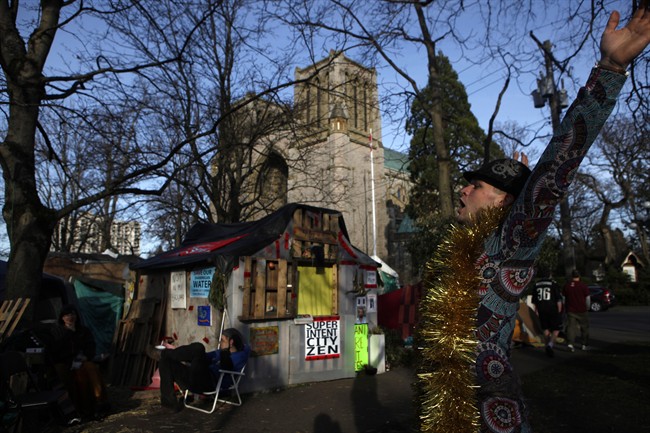VICTORIA – B.C. Housing Minister Rich Coleman says he learned valuable lessons from the government’s handling of a homeless camp on the lawn at Victoria’s courthouse, and one of those lessons is acting more quickly to provide housing for people who are looking for it.

The camp saw more than 100 homeless people build a village of tents, fences and fires on provincial property in the middle of an affluent, tree-lined downtown neighbourhood.
Neighbours complained of rats and used syringes, while the residents of the so-called tent city and homeless activists said the camp was a real-life snapshot of the lack of shelter space and housing for vulnerable people.
“The one lesson we learned is, as we dealt with some on these tent cities, is early intervention and understanding the clientele,” Coleman said in a recent telephone interview. “I think we maybe could have done a better job on that in Victoria.”
The first tents arrived at the courthouse lawn in November 2015 and the final tent did not come down until mid-August of this year. The government applied twice to the B.C. Supreme Court for injunctions to shut down the camp.
READ MORE: Province shuts down Victoria tent city, housing offered to all campers
The first application was rejected because the government did not adequately prove there were better options for the tent city’s residents, but the second injunction was granted after the government proved safety conditions had deteriorated.
“We probably could have had more information for the judge to be able to make the decision to allow us to vacate the camp earlier,” Coleman said.
Coleman said he doesn’t advocate breaking up the camps without being able to provide housing, but in Victoria new people kept arriving at the tent city as the government found shelter space for campers.
“Part of it is knowing and understanding your clientele, but also moving quickly, which we did in Victoria to find facilities and space for people but we were seeing … an influx of people who were back filling what we were doing,” he said.
B.C. ended up spending more than $25 million to purchase and renovate properties to provide more than 190 spaces for homeless people in Victoria, including shelter and living units at a former youth jail, a community centre and a former seniors’ care facility.
“I think part of it is to make sure you are always looking at your inventory to see what might be out there if you have a spike,” Coleman said.
He said recent downturns in provincial economies in Western Canada have seen a rise in homeless numbers in B.C.
“In the last 18 months we’ve seen an influx of people into the province who are ending up homeless because they are coming here without knowing whether they have a job or not,” Coleman said. “We have seen an uptick and it does create a challenge for us.”
The Housing Ministry’s website says B.C. committed $855 million this year to support the construction of 5,000 units of affordable rental housing. Since 2001, B.C. has spent $4.9 billion to provide affordable housing for low income individuals, seniors and families, it says.



Comments